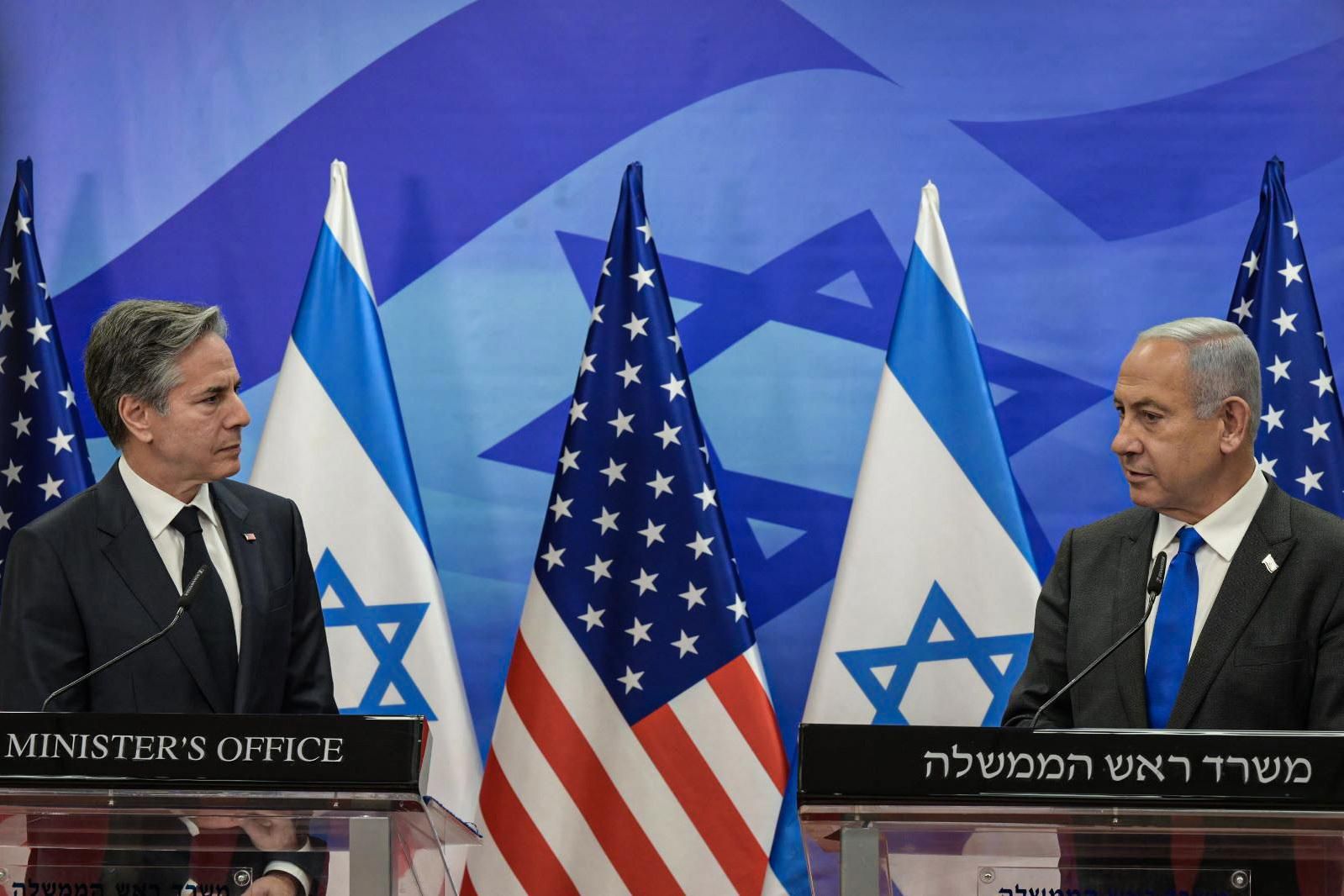What We’re Watching: Blinken’s Middle East chats, Erdogan’s bid to split Nordics, Peru’s early election, China offers baby incentives
Blinken meets with Middle East leaders
US Secretary of State Antony Blinken picked a volatile time to visit the region. After first stopping in Egypt to meet with President Abdel Fattah el-Sissi, the US’ top diplomat touched down in Israel on Monday, where he took part in a press conference with Prime Minister Benjamin “Bibi” Netanyahu. But Blinken’s visit comes amid a violent flareup in the long-running Israeli-Palestinian conflict. Last week, Israel carried out an operation in Jenin in the West Bank, targeting members of Palestinian Islamic Jihad in an operation that killed nine people, including civilians. Meanwhile, on Friday night, a Palestinian opened fire on Jews praying at a synagogue in East Jerusalem, killing seven. Then on Saturday, a 13-year-old Palestinian boy shot a father and son in Jerusalem’s Old City. What’s more, Israel is currently in the throes of a constitutional crisis as Netanyahu’s right-wing government seeks to dilute the power of the independent judiciary. But analysts say that the top agenda item is undoubtedly Iran. Over the weekend, Israel reportedly struck a compound in the Iranian city of Isfahan used to manufacture long-range missiles. (For more on the Isfahan attack and why Iran is feeling increasing pressure at home and abroad, watch Ian Bremmer’s Quick Take here.) It’s unclear whether the US was informed in advance about the strike, but Israeli leadership has in the past clashed with Washington over Jerusalem’s go-at-it-alone approach to dealing with Iran. As things become increasingly volatile in the Iran-Israel shadow war, Blinken presumably wants to make sure that the US is kept in the loop. On Tuesday, Blinken will meet with Palestinian Authority President Mahmoud Abbas and Israel's opposition leader Yair Lapid.
Finland sticks with Sweden, despite Erdoğan’s wedge
Many thought Sweden and Finland’s NATO accession bid was all sewn up last summer. But it requires approval from all 30 bloc members, and Turkish President Recep Tayyip Erdoğan now says he is willing only to greenlight Finland’s bid. Erdoğan’s decision to hold out on Sweden comes in the wake of outcry over a protest in Stockholm where a Quran was burned earlier this month. Despite speculation that Finland, which shares a 1,300-kilometer (810-mile) border with Russia, might proceed without Sweden, Finland’s foreign minister said otherwise on Monday. He explained that his country is willing to wait until the Swedish issue is resolved thanks to security assurances from the US and Britain. In exchange for NATO membership, Erdoğan has also demanded the two countries hand over scores of Turkish and Kurdish dissidents and stop more Erdoğan critics from seeking refuge there. Expect this standoff, which is helping Erdoğan whip up nationalist fervor at home, to continue until Turkey’s presidential election on May 14.
Will Peruvians vote this year?
Peru's Congress on Monday voted to reconsider holding an early election in October to help end violent protests that broke out after former President Pedro Castillo was impeached and removed in December 2022. So far, at least 58 people have died in the rallies, the majority of them Indigenous people from Peru's rural highlands who support Castillo. If the early election proposal is voted down, current President Dina Boluarte will likely present her own plan, which would also call for a first-round vote in October and a runoff in November. If that fails and the protests continue, Boluarte might just cave to the protesters by resigning, which would force the Congress president to call an immediate election, as mandated by the constitution. Confused? So are we. The bigger questions are whether angry Peruvians can wait several months to vote before the situation gets out of control, and what happens if it does. The only thing we do know is that 60% of Peruvians want elections ASAP and a whopping 89% of them resent how Congress is handling the crisis.
One Chinese province tries for more babies
For the first time since the 1960s, China’s population shrank in 2022, setting off alarm bells that its one-child policy (in place from 1980-2015) created a looming demographic crisis that will stunt the country’s economic growth and force older Chinese into poverty. With fewer young people to support the elderly in a country with a still underdeveloped social safety net, public officials are now scrambling for ways to encourage citizens to make more babies. Another sign of the times: Sichuan, home to more than 80 million people, has become the latest province to allow unmarried couples to register children to receive health benefits. (Guangdong province, which borders Hong Kong, has made similar changes. The city of Shanghai offered these reforms in 2021 before rescinding them within weeks.) The change, effective February 15, will allow unmarried women and men to register with local authorities to receive insurance to cover child-related medical bills and to keep their salaries during maternity leave. The debate within China that pits economic imperatives against family values has only begun to heat up.
